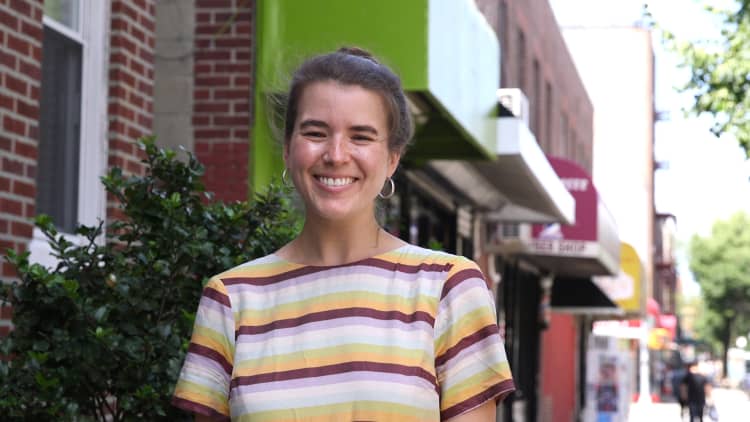As the coronavirus began spreading across the U.S. and shutting down parts of the economy in March and April, Ellevest, which launched as a robo-advisor for women investors, began receiving thousands of questions about money from its community of users.
At that point, the company was primarily focused on getting more women into investing for life goals like retirement or a down payment for a house. But the questions it was receiving via Instagram DM and email weren't just about stocks or timing the market, Sallie Krawcheck, Ellevest's co-founder and CEO, tells CNBC Make It. They covered everything from budgeting to savings habits to paying off debt to applying for unemployment.
The thousands of user questions led Krawcheck and her team to expand the scope of the company's offerings beyond investing and financial coaching. On Wednesday, it introduced a three-tiered membership program. Starting at $1 a month, members can open an FDIC-insured savings account through the app, which comes with a Mastercard debit card and unlimited ATM reimburements, in addition to a brokerage account. There is also a $5 per month tier and $9 per month tier, which include access to other products and services like retirement accounts and discounts on financial and career coaching sessions.
"It's less than the price of doing nothing," Krawcheck says of the membership cost. "When you look at what women have given up on — investing, saving and the lost wealth from that — bring it to her in a way that she can digest it, and it is really life changing."
Ellevest differentiates itself from other fintech apps like Wealthfront and Robinhood by offering learning resources such as articles, workshops and video courses to its users, over 90% of whom are women, Krawcheck says. Unlike some other apps, Ellevest's users aren't primarily interested in trading stocks, but rather building wealth and accomplishing other long-term goals.
Other companies, including Betterment, also offer sessions with certified financial planners at an additional cost.
Taking a holistic approach to money is helpful because women's finances have been hit harder than men's on average over the course of the pandemic, Krawcheck says. Women, who already earned less than men on average and had less of a financial cushion to fall back on before coronavirus, make up a disproportionate share of workers who have lost their jobs, make up a greater share of essential workers and, if they are working from home, continue to take on the lion's share of unpaid care-taking duties.
The pandemic exacerbated the gaps between men and women when it came to their finances, says Krawcheck. "Those with less do worse during downturns."
The learning resources and coaching, in particular, are meant to help women make better informed financial decisions (Krawcheck says her team tries to answer every question users submit). The hope is that women will begin to feel more confident and learn how to rebound from financial setbacks.
"We are so focused on getting women to a position of financial strength," she says. "We can't find anything bad that happens when women have more money."
Don't miss: What you need to know about 'gender lens' investing
Check out: The best credit cards of 2020 could earn you over $1,000 in 5 years



